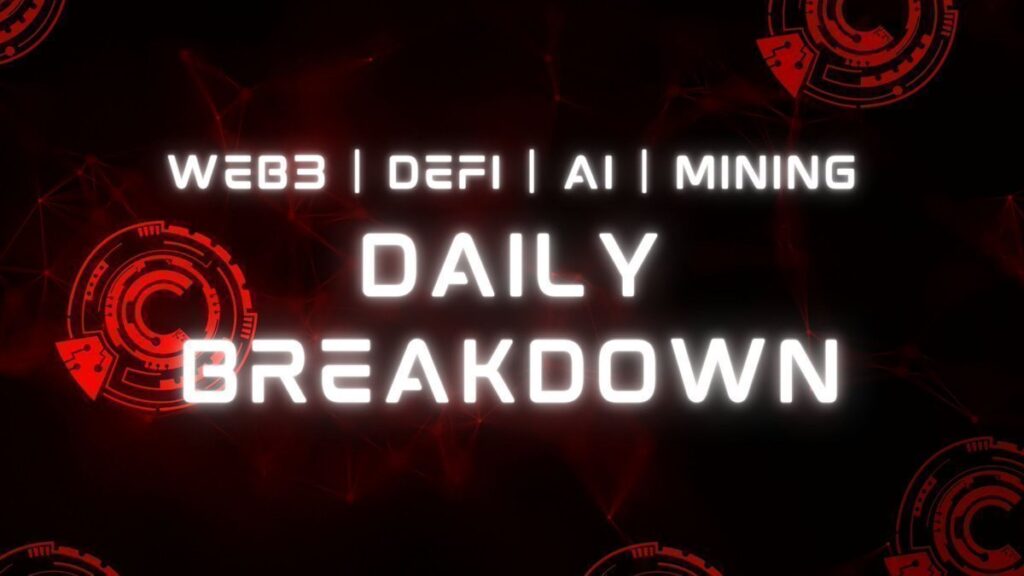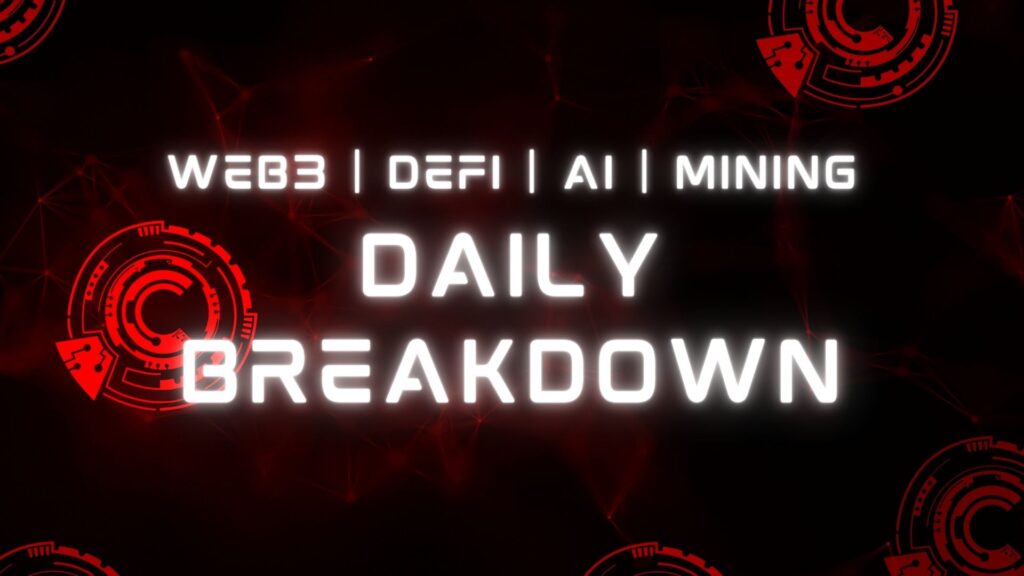
TL;DR
Bitcoin mining difficulty drops significantly, Goldman Sachs plans tokenization products, tech giants decline OpenAI board seats, Ethereum ETFs approach launch, and U.S. lawmakers engage with crypto advocates. The crypto landscape continues to evolve rapidly, with both challenges and opportunities emerging for investors, miners, and regulators alike.
Crypto Landscape Shifts: Mining Challenges, Wall Street Interest, and Regulatory Developments
Bitcoin Mining Difficulty Plummets
In a significant turn of events, Bitcoin mining difficulty has experienced its most substantial drop since the collapse of FTX in 2022. The 7.8% decrease in mining difficulty marks a pivotal moment for miners, particularly smaller operations that may find renewed profitability in the current landscape.
This adjustment comes in the wake of the recent Bitcoin halving event, which has drastically impacted miners’ revenue streams. Daily earnings have plummeted from a pre-halving high of $78 million to a current low of $26 million. This stark reduction underscores the volatility and challenges inherent in the cryptocurrency mining sector.
The decreased difficulty could serve as a lifeline for smaller mining operations, potentially leading to a more decentralized network – a core tenet of Bitcoin’s original vision. This shift may contribute to the long-term resilience and stability of the Bitcoin network, aligning with the principles of decentralization that underpin the cryptocurrency ethos.
Wall Street Giants Eye Crypto Opportunities
In a move that signals growing mainstream acceptance of digital assets, Goldman Sachs has announced plans to launch three new tokenization products this year. This development comes as the investment banking giant reports a significant uptick in client interest in cryptocurrencies.
The renewed momentum in the crypto space is largely attributed to the successful adoption of Bitcoin exchange-traded funds (ETFs) in the United States. As traditional financial institutions continue to embrace digital assets, the line between conventional finance and the crypto world becomes increasingly blurred.
This integration of cryptocurrencies into established financial systems represents a double-edged sword. While it may lead to increased adoption and legitimacy, it also raises questions about the preservation of the decentralized and anti-establishment principles that gave birth to Bitcoin and other cryptocurrencies.
Tech Giants Shy Away from AI Governance
In a surprising turn of events, both Microsoft and Apple have declined to take board seats at OpenAI, the artificial intelligence firm that has been making waves in the tech industry. This decision comes amidst growing regulatory scrutiny of Big Tech’s influence on AI development and deployment.
The withdrawal of these tech giants from direct governance roles in AI companies may signal a strategic move to avoid potential conflicts of interest or regulatory backlash. However, it also raises questions about the future direction and oversight of AI development, a field that holds immense potential to reshape society and the economy.
Ethereum ETFs on the Horizon
The cryptocurrency market is abuzz with anticipation as Ethereum ETFs appear to be nearing their launch date. Industry experts suggest that these ETFs could attract up to $15 billion in inflows within their first 18 months of trading, potentially rivaling the success of Bitcoin ETFs.
This development could mark a significant milestone in the mainstream adoption of Ethereum and, by extension, the broader acceptance of decentralized finance (DeFi) and smart contract platforms. The introduction of Ethereum ETFs may provide traditional investors with a regulated avenue to gain exposure to the second-largest cryptocurrency by market capitalization.
Regulatory Landscape Evolves
The U.S. Department of Energy is preparing a new survey on crypto mining energy usage, following the suspension of its previous attempt due to legal challenges. This renewed effort, which now seeks input from industry participants, highlights the ongoing regulatory focus on the environmental impact of cryptocurrency mining.
Simultaneously, U.S. lawmakers have engaged in a roundtable discussion with crypto advocates, signaling a potential shift in the political approach to digital assets. The presence of a senior adviser to President Biden at this event, albeit in a personal capacity, suggests that the administration may be reconsidering its stance on cryptocurrencies.
These developments underscore the complex and evolving relationship between the crypto industry and regulatory bodies. As the sector continues to mature, finding a balance between innovation and regulation remains a critical challenge.
In the grand tapestry of human progress, cryptocurrencies and blockchain technology represent a bold stride towards a future of financial sovereignty and decentralized governance. As we navigate the challenges and opportunities presented by this digital revolution, we must remain vigilant in preserving the core principles of freedom, privacy, and individual empowerment that inspired the creation of Bitcoin and its successors. The path forward may be uncertain, but the potential for a more equitable and decentralized global financial system beckons us onward.
Thank you for reading “Today’s Highlights From Within the Crypto World“.
- Follow us on Twitter
- Follow us on Rumble
- Follow us on YouTube
- Follow us on FB
- Follow us on IG
- Follow us on TikTok
Sources:
- CoinDesk
- Business Insider
- Bloomberg
- Bitwise
- U.S. Department of Energy
- EthCC conference proceedings
- Crypto Council for Innovation
- Tezos Foundation
- Baanx





